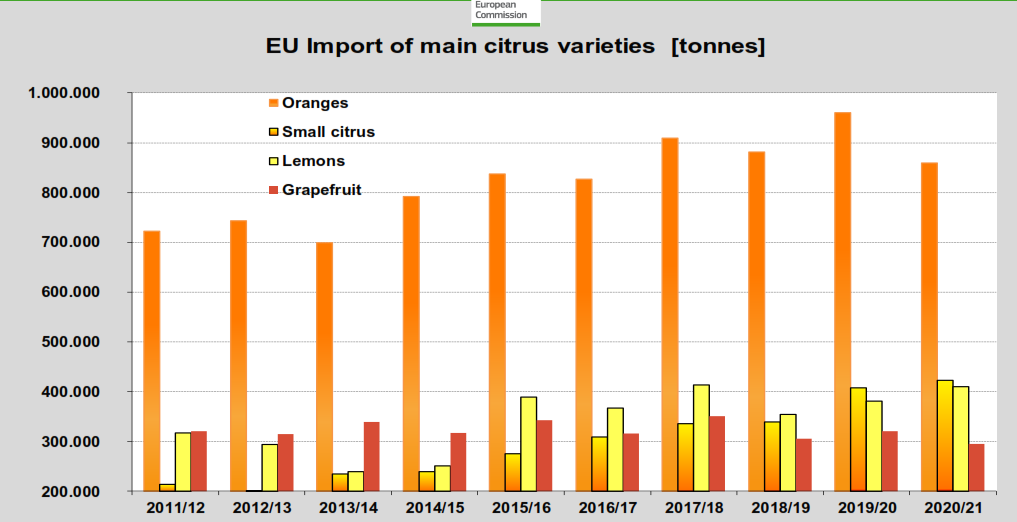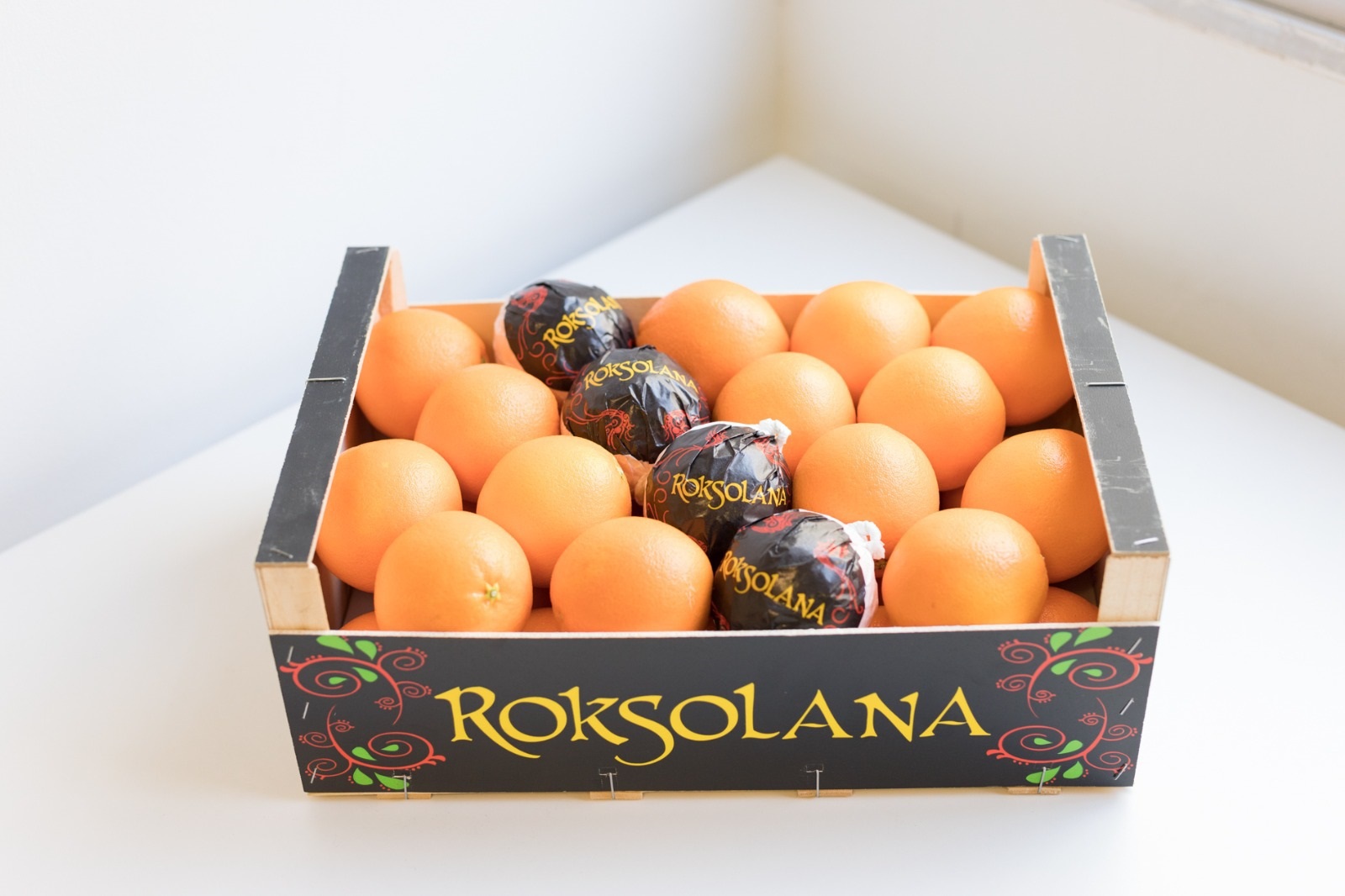Oranges losing their appeal
Oranges are starting to steadily lose shelf space in European supermarkets as demand rises for exotic fruits such as avocado and pineapple. Within the citrus category, mandarins are also gaining ground on oranges. Tridge reports that total consumption of citrus fruit in the EU was down by 3% in 2020/21 compared to the previous campaign. In Spain, per capita consumption of oranges has fallen by 16% over the past five years to 17.4 kg per annum, according to producer association Unión de Uniónes. In 2007, oranges accounted for 15% of the total fresh fruit consumed by Spaniards, while in 2020 it was down to 12%.
South African exporters seek alternative markets
This falling demand will make especially unpleasant reading for South African citrus exporters, whose oranges must now undergo pre-cooling to prevent the spread of false codling moth (FCM), as prescribed by an EU law that came into place in July. These requirements entail additional costs when importing oranges to the EU from South Africa, due to longer storage times and extra paperwork and inspections. The longer process shortens shelf life and the cold treatment affects quality as the low temperatures can cause skin damage in oranges. It is unsurprising then that many South African exporters are switching to less stringent markets than the EU, such as the Middle East, which will result in higher prices in Europe.





